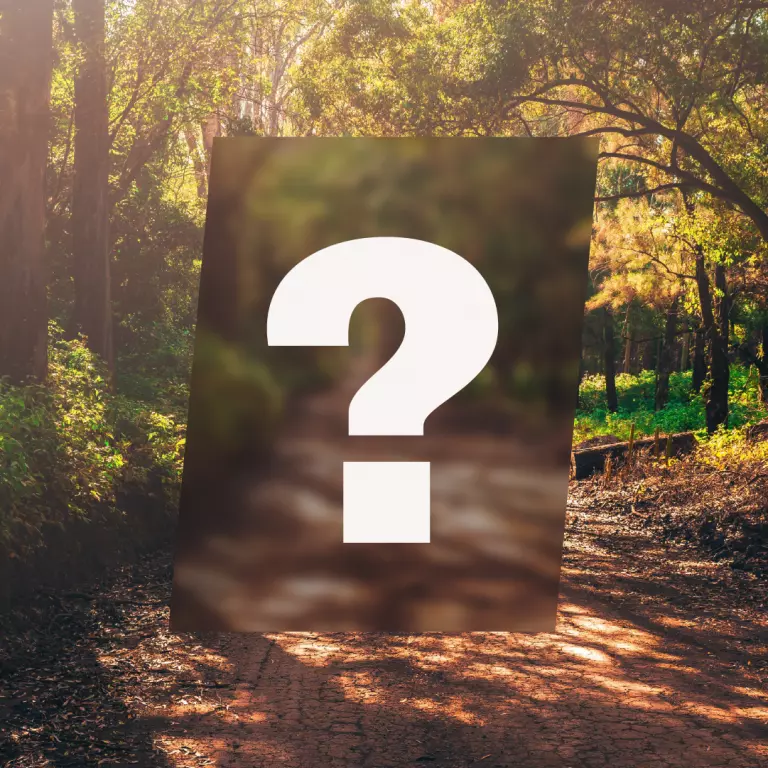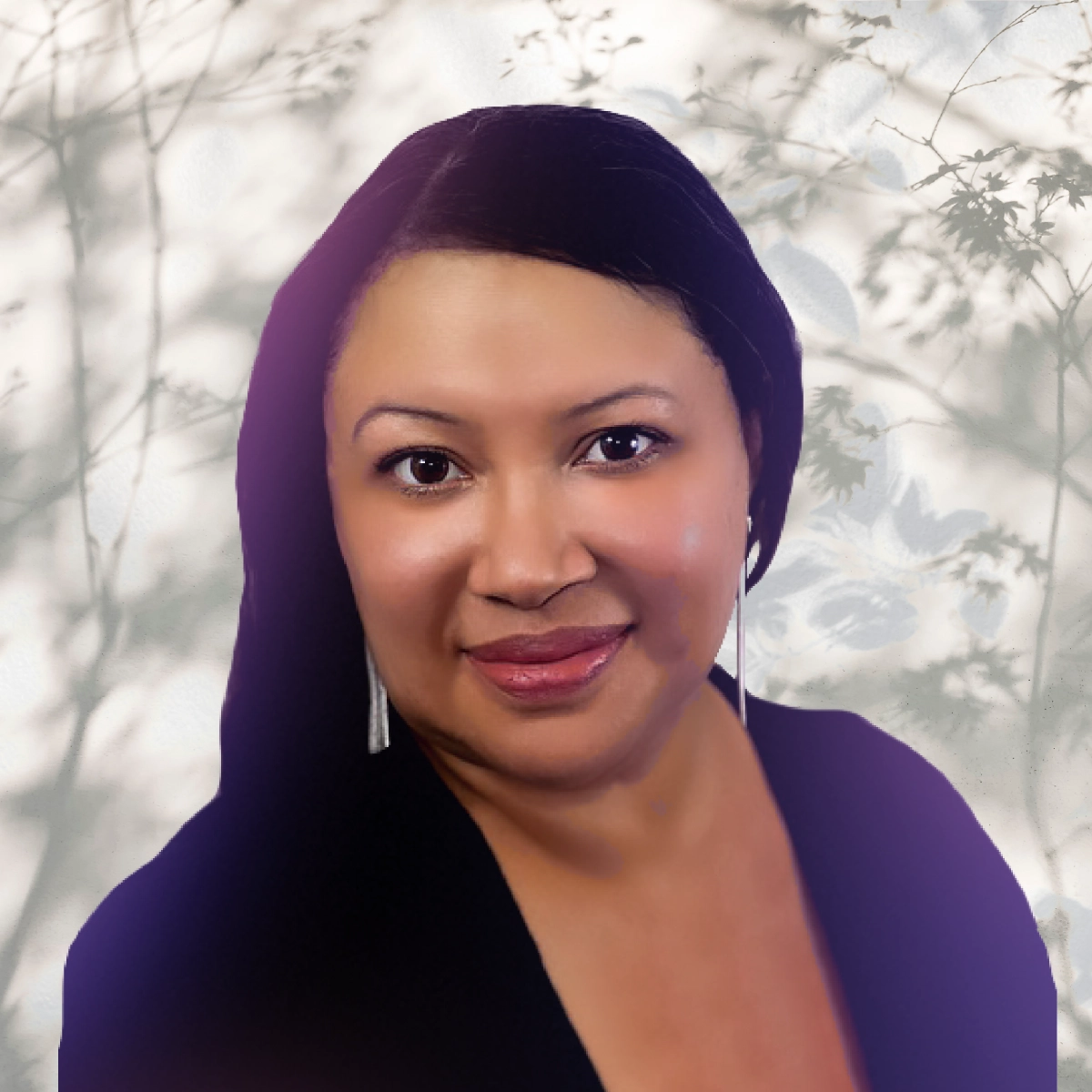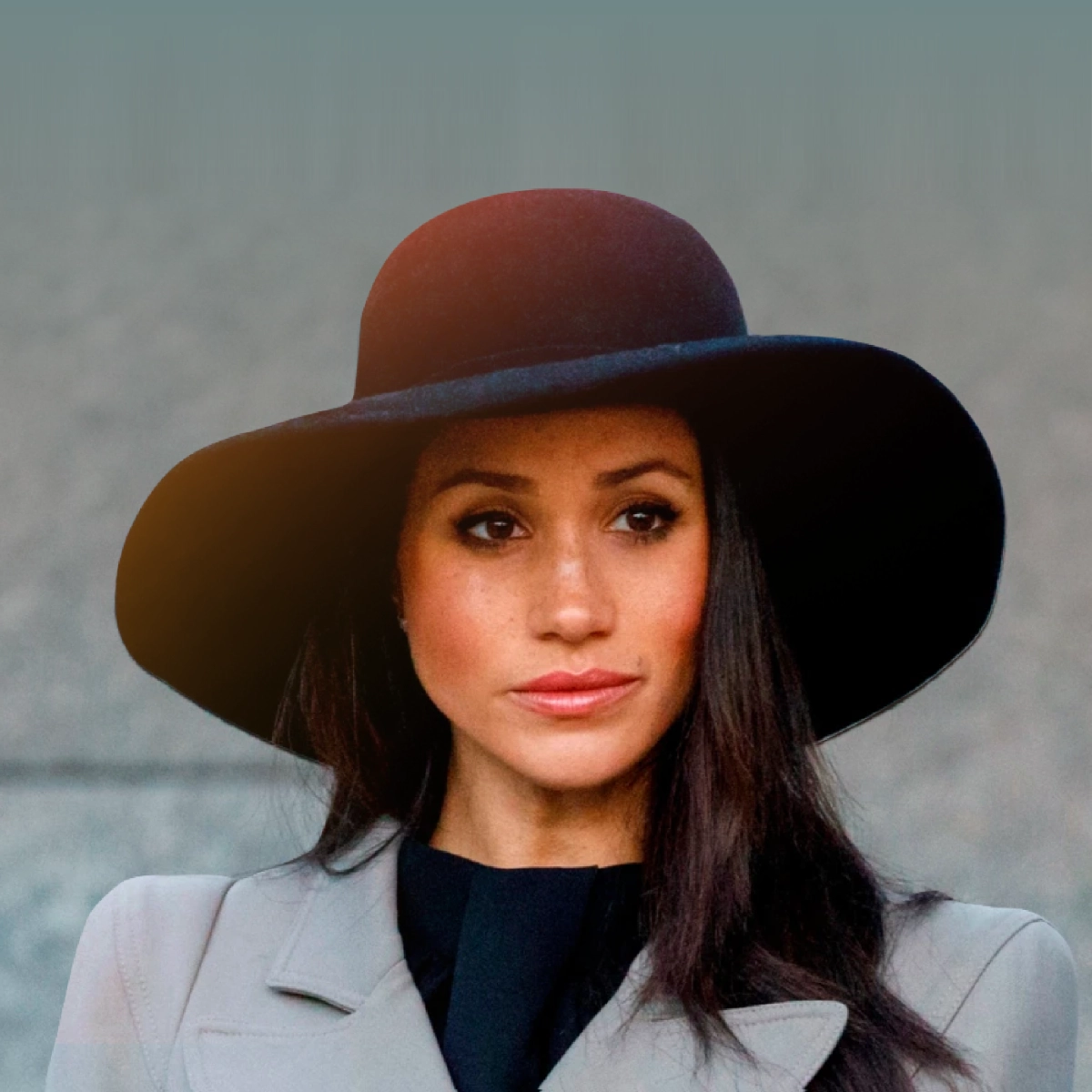As we prepare to gather with our relatives in the upcoming holiday season, the November Meetup served as a space for sharing experiences and gathering tools to support us in navigating tough conversations—often political discourse—with our relatives at the dinner table. As a group, we remembered the importance of maintaining our relationships while also living out our core values.
Our hosts for the evening were Mike Avila and Ariel Bastida, who, as one of The Mixed Space’s founding members, announced her departure by the end of the meetup. On a bittersweet note, Ariel’s final night as meetup host was one based on bonding and being true to one’s own journey, leaving a tremendously positive impact on The Mixed Space.
Mike presented to the group methods of listening and navigating conversations. He talked briefly about his career as a restorative justice facilitator and his transition into being a circle host. Only facilitating circles upon special requests for life events such as transitioning of loved ones, Mike spoke of how his role as a circle host guides him in approaching conversations with his relatives in Texas.
“In traditional talking circles,” Mike explained, “there are always ways to have a centerpiece, and I like to consider it as a way to ground a space.” He described that a centerpiece such as photos of loved ones or ancestors, inspiring images with quotes, or a passed-down heirloom piece can serve as a conversation starter and grounding piece.
Mike also described what it means to “listen with love,” a training method he would do at schools with other educators and non-profit organizations. Based on the acronym E.A.R.S., listening with love instructs you to: empathize, ask questions, reflect/rephrase, and summarize.
Empathize:
From a restorative justice perspective, Mike explained empathy in two parts: sympathy and empathy. “Sympathy,” Mike articulated, “is when you don’t have the actual experience, but you can have feelings for someone and what they’re going through.” With empathy, you’ve actually been through what someone else is going through. Therefore you can empathize with them because you can relate. Mike concluded that empathy opens you up to one another’s perspectives even when disagreeing.
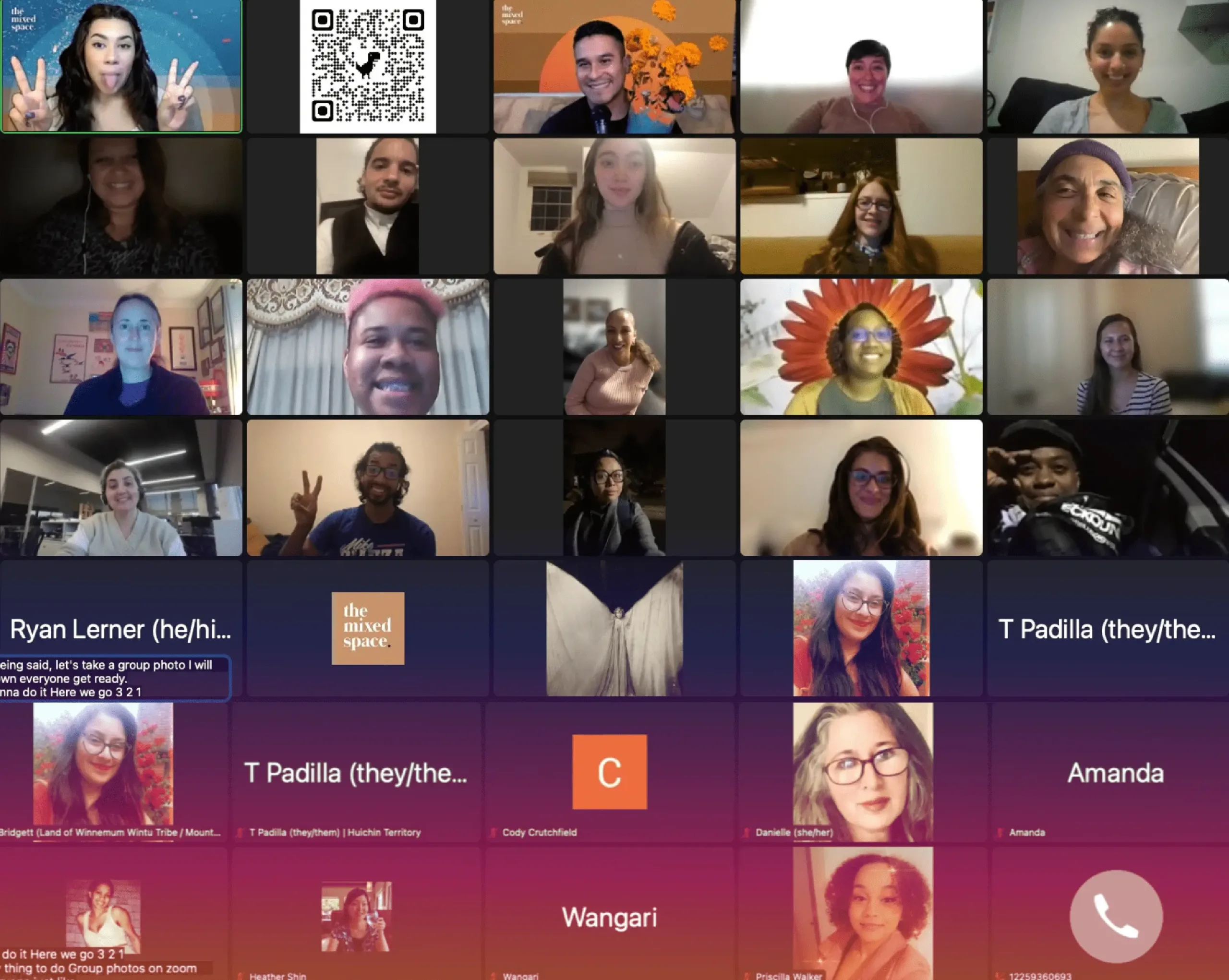
Ask Questions:
A simple way to engage in a conversation before making a comment or rebuttal is by being curious. Ask clarifying questions to make sure you understand what the other person is trying to say. This is important because it lets the other person know you are truly listening and engaging with them meaningfully.
Reflect/Rephrase:
Mike made an example of reflecting and rephrasing by saying, “What I’m hearing you say is that you think ___ are better than ___.” You can repeat back what you’re hearing to establish and confirm that you’re accurately interpreting their thoughts and intentions.
Summarize:
When we take a moment to summarize the main issues brought up, the message we are walking away with, and how the other person was feeling, we ensure that each person is seen and heard. When each party can articulate what was discussed fully, it allows a conversation to have closure.
Mike emphasized that being in a disagreement doesn’t have to be bad; you don’t always have to land on the same page. The goal of a healthy conversation is that both sides feel heard and both perspectives are soaked in, sparking growth for each listener.
We then started an open discussion with the question: How do you manage family political discourse in a constructive way?
Community members opened up about methods and tools used to approach difficult conversations with family members. One member, Ramona from Credo Studio, mentioned using a speaking stick. “When someone is holding it,” she explained, “they have the attention, and they’re not to be interrupted.” She also mentioned that when conflict arises, they respectfully ask, “are you willing to discuss this?” If not, maybe later, emphasizing the importance of consent. Ramona also suggested using the sandwich method, which delivers criticism between two compliments.
When in disagreement with her sister, another member, Priscilla, said they use breathing techniques to get through things. They can practice productive conversation skills by ensuring they’re in tune with themselves and not letting their emotions control them.
Bridgett, who is a mother to a five-year-old son, offered her experience and techniques to release stress by getting outside, kicking a ball or something, checking in with her body, and letting it out, possibly even through a dance party. She also mentioned it’s a good idea to devise a plan to follow when disagreements arise.
A member, Gladys, who recently moved back in with her parents and hasn’t attended a family function for a while, emphasized the value of validating our own feelings while acknowledging they may have reacted strongly to something triggering. “I’ll eventually say, you know what, I apologize for raising my voice at you,” she explained, “because that’s not what I wanted to do, but I’m still upset for X, Y, and Z reason.” Meaning no disrespect but still stating there was good reason for her to be upset.
Another community member, Amelia, beautifully described the value of giving ourselves grace when discussing the topic of approaching racism at the table, both explicitly and in its inherent form. As a mixed American of Kenyan and Indian descent, Amelia described a concept learned in college, “It is not the responsibility of BIPOC people to educate the majority–and in the United States, this case, white Americans–on the history of racism, and how to be anti-racist.” Amelia described an intrinsic desire to “fix my mom’s side of the family.” One thing Amelia learned when talking to their mom’s sisters and hearing certain ignorances is the enormous emotional toll it takes to respond to questions like: Well, why don’t you just teach us these things?
To give ourselves grace, we can make agreements with ourselves that we aren’t responsible for educating non-BIPOC people on racial issues. Amelia tells her aunts, “I really appreciate that you’re interested…You know, I’ve heard this book is good. Why don’t you try this?”
Amelia continued, “It’s really important for me to check my anti-racism as a person of mixed identity. But also knowing I’m human, and it’s gonna be an ongoing journey. Therefore everyone else has the right to their own journey and has the same access to resources.”
After a beautiful whiteboard session filled with conversation methods and affirmations, Ariel announced that she was leaving The Mixed Space and that this was her final night as a host. She talked about the transformation she’s experienced while working at The Mixed Space. “Through the conversations that we’ve had here, I’ve been able to come into my own identity and my mixedness, and feel really proud of who I am,” emphasizing her journey as a mixed Latina/Polish woman will only continue with a deeper sense of gratitude. “I’m so excited to see where The Mixed Space goes in the future,” Ariel concluded, “and I will be cheering from the sidelines.”
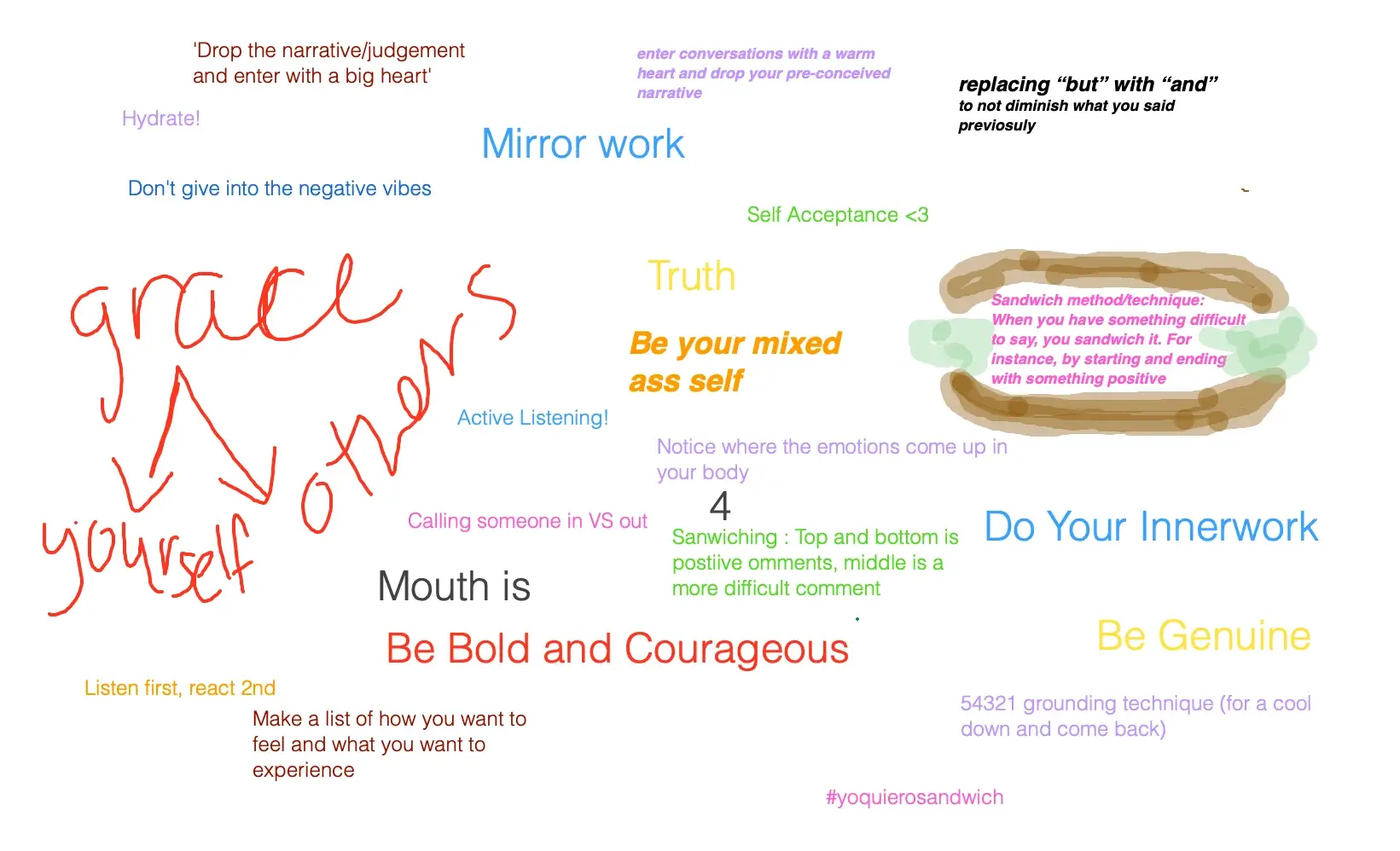
Chat Gems:
“I feel heard when people respond, make eye contact and respond emotionally properly like laughing at the funny moments, being comforting at sad moments, being engaged, not placid face and repeating bland responses.”
“Knowing whether or not to save/spend energy on it in the first place is good practice.”
“It’s also important to become aware when someone is asking questions vs. questioning you.”
“How does your heart feel?”
“An excellent word to know is ‘exulansis’ it’s the giving up of trying to explain and educate someone’s experience perspective bc people can’t understand.”
Community Resources:
Check out Mike’s Playlist!
https://music.youtube.com/playlist?list=PLtwxkRMueWR96uRH0i_HaIRu21RdAuBoB&feature=share
Film: The Courage to Love
https://www.youtube.com/watch?v=TPxfEkRMOTY
Magick Mulatta Youtube Channel
https://m.youtube.com/channel/UCaykdDXcw0OYsV4ZNdyub-A
Exulansis Definition
https://thepracticalpsych.com/blog/exulansis
Book: Philosophy and the Mixed Race Experience edited by Tina Fernandes Botts
https://www.worldcat.org/title/934797101
Phoenix Loveamor Youtube channel
https://www.youtube.com/channel/UCEeIBHmLufxymNWb_Y4gpsA
Podcast Episode: Dr. Kim TallBear on Moving Beyond Settler Sexualities:
https://www.youtube.com/watch?v=rq0I4TOO-E0


